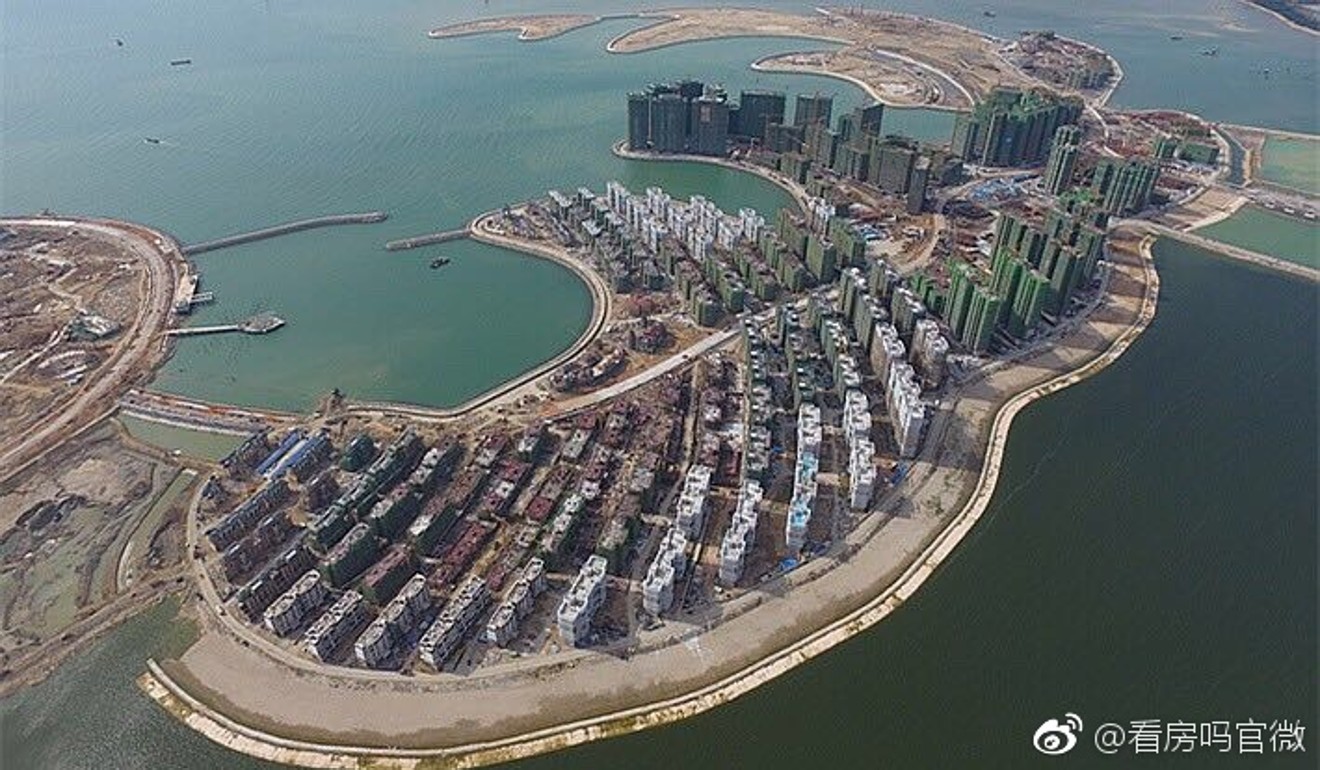
Beijing criticises province for ignoring eco crackdown on tycoon’s golf courses
Jilin’s claim project had been halted ‘did not match the facts’

China’s environment ministry has hit out at a northeastern province for turning a blind eye to two luxury golf courses operated by one of the country’s richest men, as mainland developers increasingly get caught up in Beijing’s environmental protection campaign.
The two golf courses in Jilin province, developed and operated by billionaire Wang Jianlin’s Dalian Wanda Group, were ordered to shut down in September, when ministry officials from Beijing were conducting a one-month inspection of the province.
In a report on the inspection released on Wednesday, the ministry said Jilin’s provincial government had allowed the golf courses, at Wanda’s Changbaishan International Resort, to operate in breach of regulations since 2011.
“Jilin not only failed to correct and clean up the golf project as required, but also told related state departments that the project was already halted with its facilities dismantled,” the report said. “[What it said] obviously did not match the facts.”
A total of 93 villas had also been built at the resort and operated in violation of regulations, the report said, without naming Wanda.

The 23 billion yuan (US$3.5 billion) resort occupies 21 sq km, according to the Wanda’s website.
The golf courses, labelled “world-class” by Wanda, were among more than 600 ordered to close down or make necessary corrections during a multi-year crackdown on the sector, China’s state planning agency said in January.
Beijing has blamed golf courses for damaging farmland and rivers through their thirst for water and for fostering corruption and extravagance among officials.
It is unclear how the Wanda project violated environmental rules, and the company declined to comment.
President Xi Jinping has made environmental protection one of his governance priorities, with public discontent rising over the serious pollution caused by China’s decades of unbridled economic growth.
Since July last year, the central government has sent inspection teams across the country to examine environmental protection efforts. The campaign has seen officials sacked and development projects criticised.
In an inspection report on Hainan province, released on Saturday, the Ministry of Environmental Protection said local governments on the tropical resort island had colluded with property giants in damaging the environment.

Among the projects singled out for criticism were Ocean Flower Island, a 160 billion yuan man-made island developed by China Evergrande, and Sun Moon Bay, another reclamation project backed by Sunac China. The two mainland developers are both listed in Hong Kong.
“Some cities and counties … depend too much on property development for their finance,” the report said. “Wherever developers point their fingers, government planning follows. The wallets are filled up, but the ecosystem is destroyed.”
However, some analysts doubt the criticism will see local authorities impose higher environmental standards when approving development projects, which are a key source of local revenue.
David Hong, a Hong Kong-based analyst at China Real Estate Information Corp, said environmental impact had yet to become a real concern for mainland developers as they fought for government land.
“Many companies talk about sustainability only as a stunt,” Hong said. “Companies are profit driven. If the government is not eyeing the environment, they see no need to make efforts.”